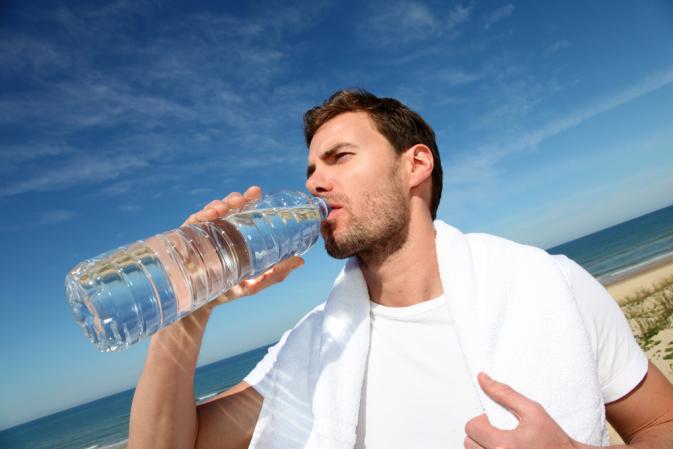
“Maintenance of an adequate fluid intake is essential for optimal athletic performance”
“Being more than two percent dehydrated in warm environments causes a decline in performance,” says Robert W. Kenefick, Ph.D., a physiologist with the U.S. Army Research Institute of Environmental Medicine.
Higher levels of dehydration impair mental concentration, alertness, muscular strength and endurance, physical work capacity, and increase risks of heat injury.
During exercise, “thirst” is an unreliable guide to determine when to drink fluid, since exercise reduces the thirst sensation.
The most practical method of ensuring adequate fluid replacement during and after exercise is through regular assessment of body weight. Each 1 lb lost should be replaced with 1 L of fluid.
Monitoring urine color and volume is another useful method of assessing hydration. Athletes should excrete at least 900ml of clear urine daily.
To maintain adequate hydration, sweat loss must be replaced.
Fluid consumption includes all liquids plus water in foods.
No Comments to "The Importance of Hydration"